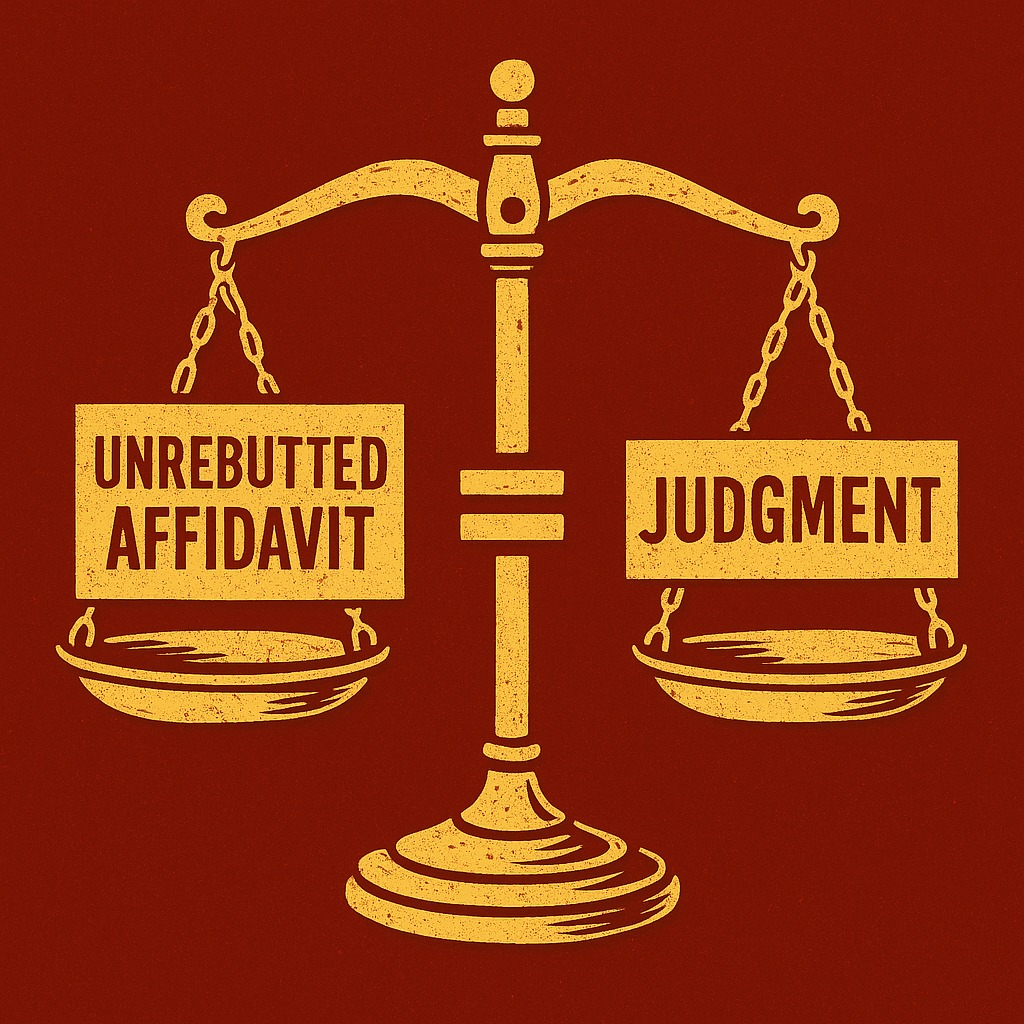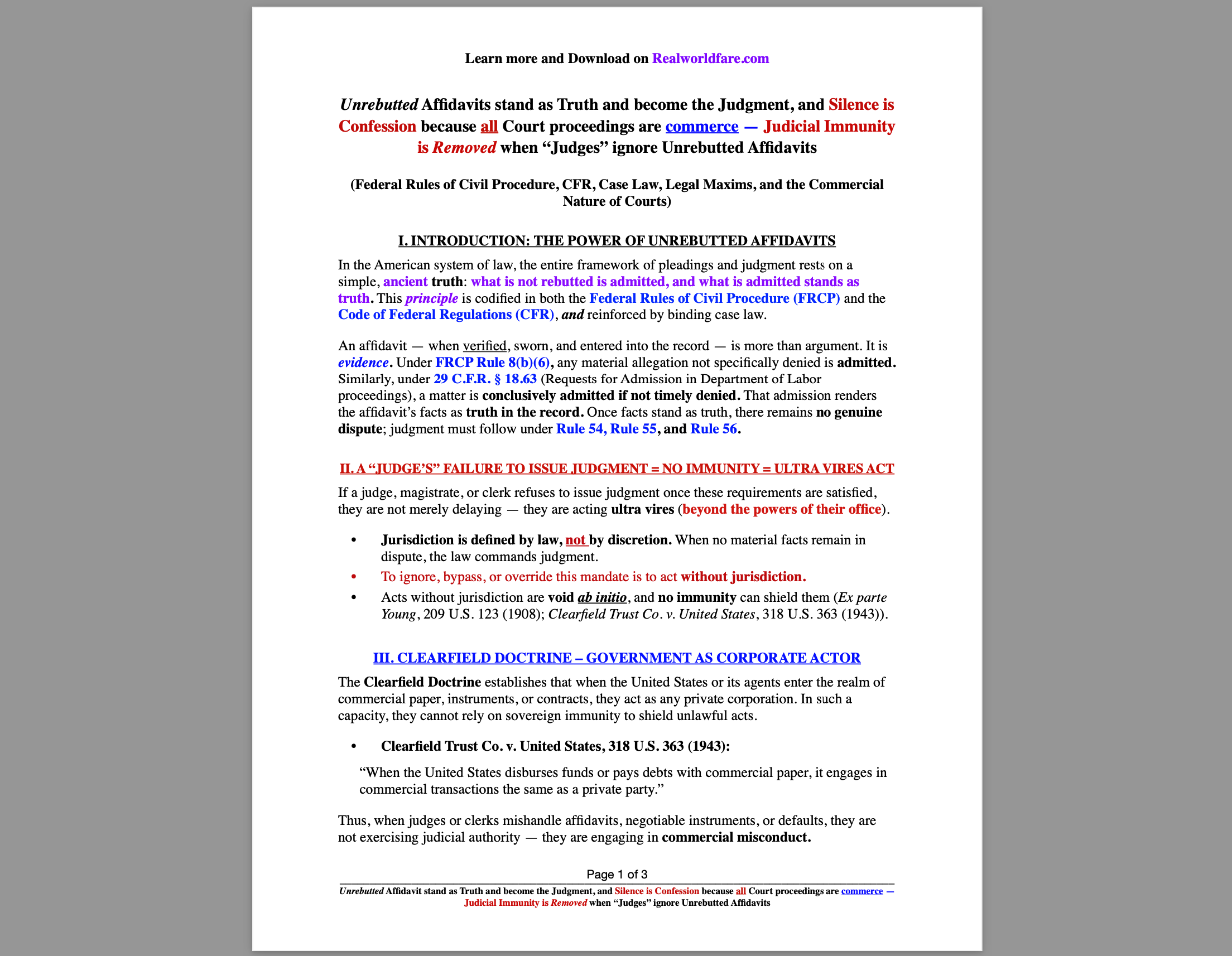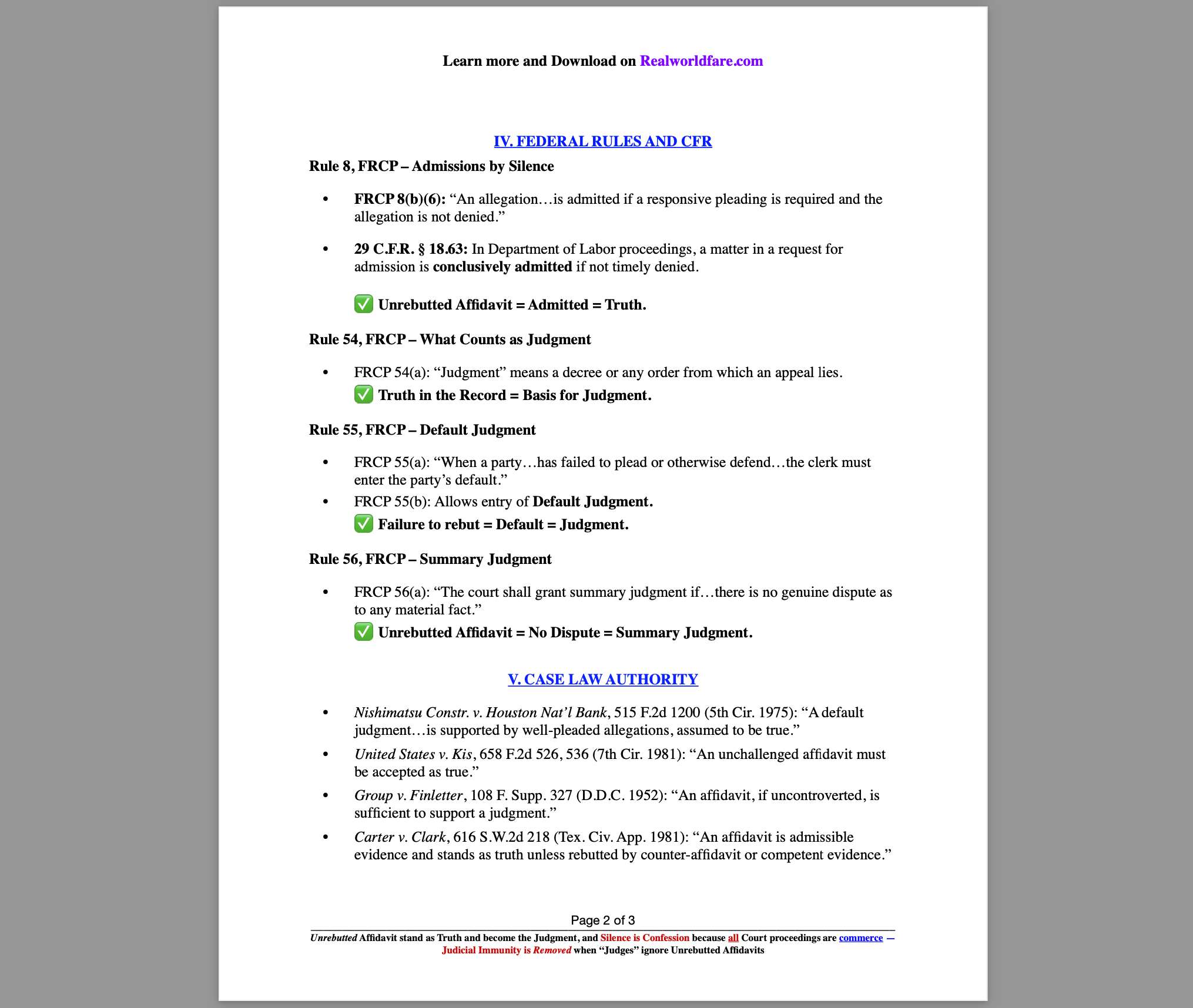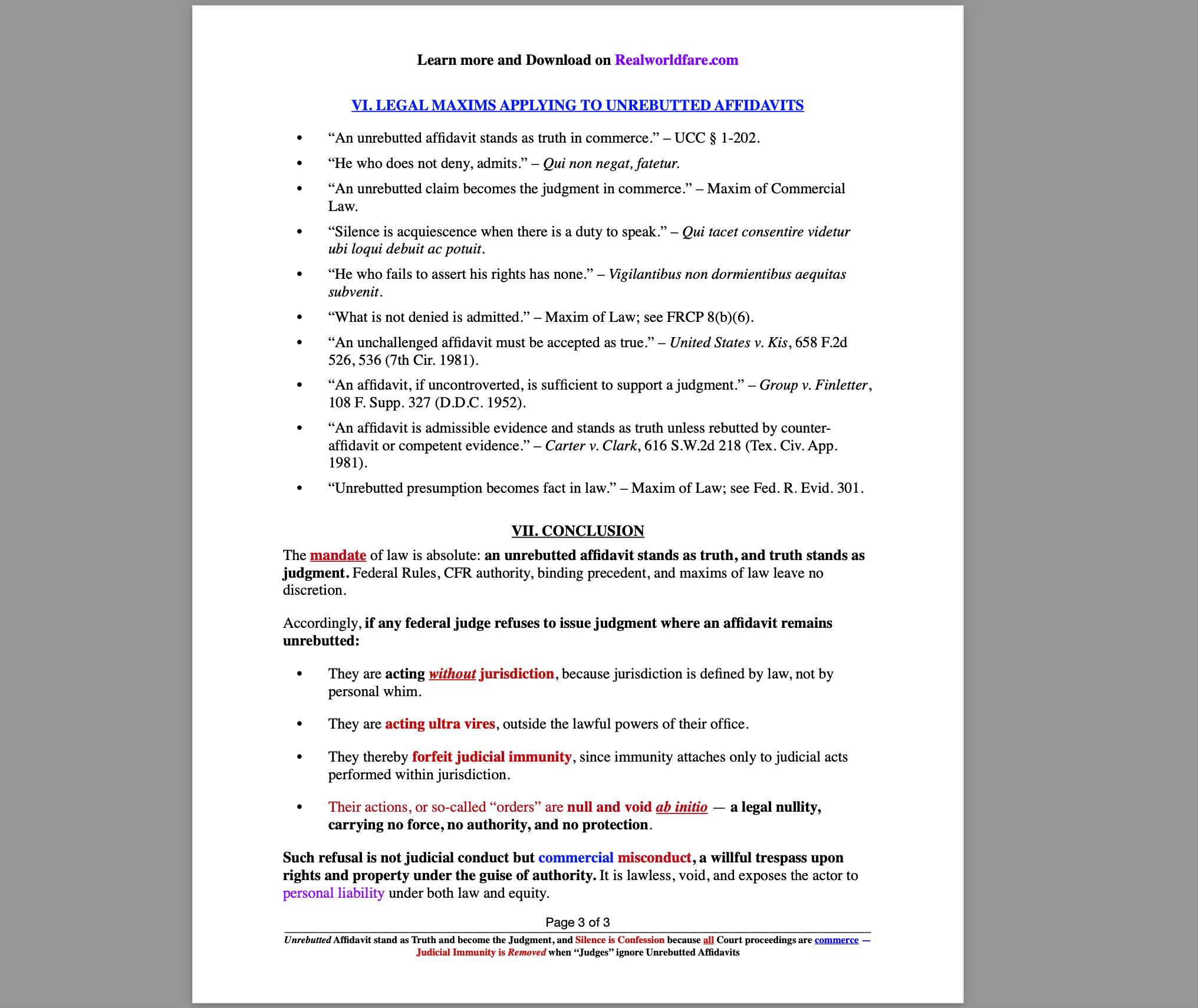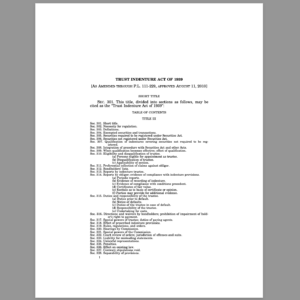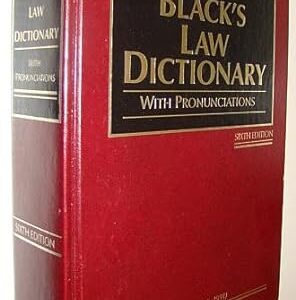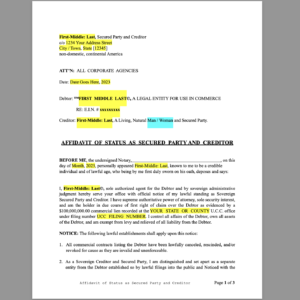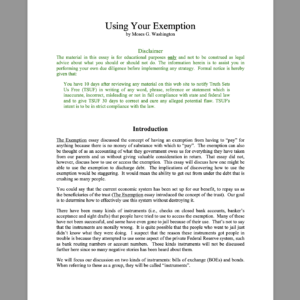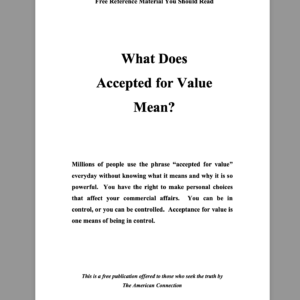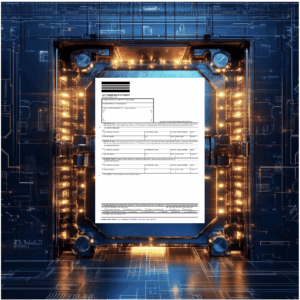I. INTRODUCTION: THE POWER OF UNREBUTTED AFFIDAVITS
In the American system of law, the entire framework of pleadings and judgment rests on a simple, ancient truth: what is not rebutted is admitted, and what is admitted stands as truth. This principle is codified in both the Federal Rules of Civil Procedure (FRCP) and the Code of Federal Regulations (CFR), and reinforced by binding case law.
An affidavit — when verified, sworn, and entered into the record — is more than argument. It is evidence. Under FRCP Rule 8(b)(6), any material allegation not specifically denied is admitted. Similarly, under 29 C.F.R. § 18.63 (Requests for Admission in Department of Labor proceedings), a matter is conclusively admitted if not timely denied. That admission renders the affidavit’s facts as truth in the record. Once facts stand as truth, there remains no genuine dispute; judgment must follow under Rule 54, Rule 55, and Rule 56.
II. A “JUDGE’S” FAILURE TO ISSUE JUDGMENT = NO IMMUNITY = ULTRA VIRES ACT
If a judge, magistrate, or clerk refuses to issue judgment once these requirements are satisfied, they are not merely delaying — they are acting ultra vires (beyond the powers of their office).
- Jurisdiction is defined by law, not by discretion. When no material facts remain in dispute, the law commands judgment.
- To ignore, bypass, or override this mandate is to act without jurisdiction.
- Acts without jurisdiction are void ab initio, and no immunity can shield them (Ex parte Young, 209 U.S. 123 (1908); Clearfield Trust Co. v. United States, 318 U.S. 363 (1943)).
III. CLEARFIELD DOCTRINE – GOVERNMENT AS CORPORATE ACTOR
The Clearfield Doctrine establishes that when the United States or its agents enter the realm of commercial paper, instruments, or contracts, they act as any private corporation. In such a capacity, they cannot rely on sovereign immunity to shield unlawful acts.
- Clearfield Trust Co. v. United States, 318 U.S. 363 (1943):
“When the United States disburses funds or pays debts with commercial paper, it engages in commercial transactions the same as a private party.”
Thus, when judges or clerks mishandle affidavits, negotiable instruments, or defaults, they are not exercising judicial authority — they are engaging in commercial misconduct.
IV. FEDERAL RULES AND CFR
Rule 8, FRCP – Admissions by Silence
- FRCP 8(b)(6): “An allegation…is admitted if a responsive pleading is required and the allegation is not denied.”
- 29 C.F.R. § 18.63: In Department of Labor proceedings, a matter in a request for admission is conclusively admitted if not timely denied.
✅ Unrebutted Affidavit = Admitted = Truth.
Rule 54, FRCP – What Counts as Judgment
- FRCP 54(a): “Judgment” means a decree or any order from which an appeal lies.
✅ Truth in the Record = Basis for Judgment.
Rule 55, FRCP – Default Judgment
- FRCP 55(a): “When a party…has failed to plead or otherwise defend…the clerk must enter the party’s default.”
- FRCP 55(b): Allows entry of Default Judgment.
✅ Failure to rebut = Default = Judgment.
Rule 56, FRCP – Summary Judgment
- FRCP 56(a): “The court shall grant summary judgment if…there is no genuine dispute as to any material fact.”
✅ Unrebutted Affidavit = No Dispute = Summary Judgment.
V. CASE LAW AUTHORITY
- Nishimatsu Constr. v. Houston Nat’l Bank, 515 F.2d 1200 (5th Cir. 1975): “A default judgment…is supported by well-pleaded allegations, assumed to be true.”
- United States v. Kis, 658 F.2d 526, 536 (7th Cir. 1981): “An unchallenged affidavit must be accepted as true.”
- Group v. Finletter, 108 F. Supp. 327 (D.D.C. 1952): “An affidavit, if uncontroverted, is sufficient to support a judgment.”
- Carter v. Clark, 616 S.W.2d 218 (Tex. Civ. App. 1981): “An affidavit is admissible evidence and stands as truth unless rebutted by counter-affidavit or competent evidence.”
VI. LEGAL MAXIMS APPLYING TO UNREBUTTED AFFIDAVITS
- “An unrebutted affidavit stands as truth in commerce.” – UCC § 1-202.
- “He who does not deny, admits.” – Qui non negat, fatetur.
- “An unrebutted claim becomes the judgment in commerce.” – Maxim of Commercial Law.
- “Silence is acquiescence when there is a duty to speak.” – Qui tacet consentire videtur ubi loqui debuit ac potuit.
- “He who fails to assert his rights has none.” – Vigilantibus non dormientibus aequitas subvenit.
- “What is not denied is admitted.” – Maxim of Law; see FRCP 8(b)(6).
- “An unchallenged affidavit must be accepted as true.” – United States v. Kis, 658 F.2d 526, 536 (7th Cir. 1981).
- “An affidavit, if uncontroverted, is sufficient to support a judgment.” – Group v. Finletter, 108 F. Supp. 327 (D.D.C. 1952).
- “An affidavit is admissible evidence and stands as truth unless rebutted by counter-affidavit or competent evidence.” – Carter v. Clark, 616 S.W.2d 218 (Tex. Civ. App. 1981).
- “Unrebutted presumption becomes fact in law.” – Maxim of Law; see Fed. R. Evid. 301.
VII. CONCLUSION
The mandate of law is absolute: an unrebutted affidavit stands as truth, and truth stands as judgment. Federal Rules, CFR authority, binding precedent, and maxims of law leave no discretion.
Accordingly, if any federal judge refuses to issue judgment where an affidavit remains unrebutted:
- They are acting without jurisdiction, because jurisdiction is defined by law, not by personal whim.
- They are acting ultra vires, outside the lawful powers of their office.
- They thereby forfeit judicial immunity, since immunity attaches only to judicial acts performed within jurisdiction.
- Their actions, or so-called “orders” are null and void ab initio — a legal nullity, carrying no force, no authority, and no protection.
Such refusal is not judicial conduct but commercial misconduct, a willful trespass upon rights and property under the guise of authority. It is lawless, void, and exposes the actor to personal liability under both law and equity.
